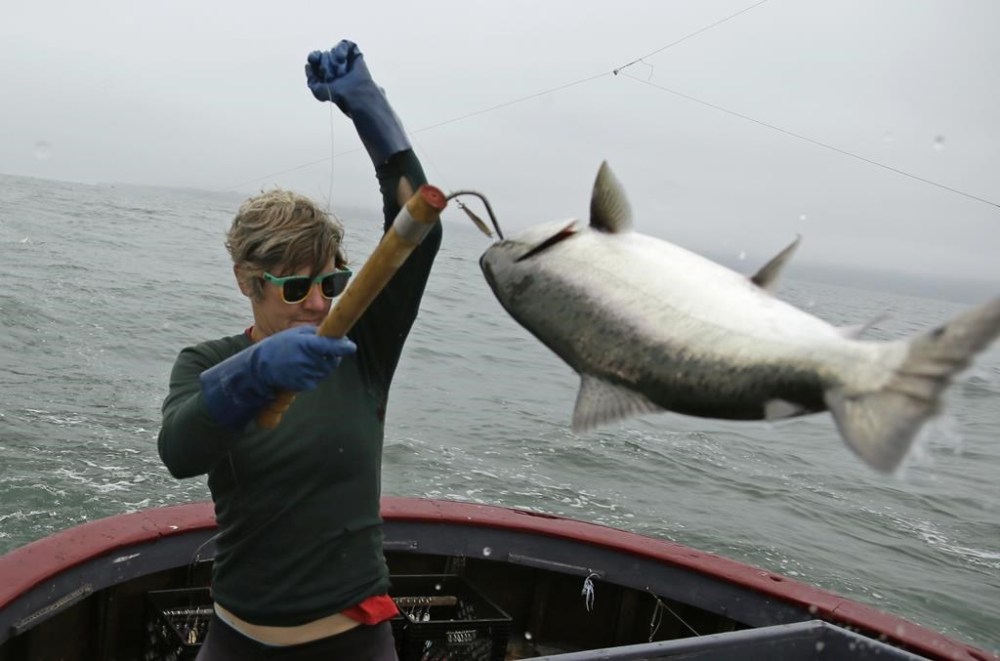
LOS ANGELES (AP) — Federal fishery managers voted Wednesday to cancel all commercial and recreational salmon fishing off the coast of California for the second year in a row, and only the fourth time in state history, because of dwindling stocks.
The unanimous vote by the Pacific Fishery Management Council, the authority responsible for setting Pacific salmon seasons, is a blow to the state fishing industry that supports tens of thousands of jobs and is still reeling from last year’s shutdown. Salmon fishing was also closed in California during the 2008 and 2009 seasons.
Like 2023, this year’s decision was made in order to protect California’s waning salmon populations after drought and water diversions resulted in river flows that are too warm and slow for the state’s Chinook salmon to flourish.

A February report by the fishery council found that in 2023 just over 6,100 fall-run Chinook, often known as king salmon, returned to the upper Sacramento River to spawn. The average between 1996 and 2005 was more than 175,000 fish.
For the time being the ban affects commercial and recreational ocean fishing. However the council has recommended that the California Fish and Game Commission consider barring river fishing as well. The state agency is expected to vote in the coming weeks.
The salmon population faces a number of challenges including river water temperatures rising with warm weather and a Trump-era rollback of federal protections for waterways that allowed more water to be diverted to farms. Climate change, meanwhile, threatens food sources for the young Chinook maturing in the Pacific.
Scott Artis, executive director of Golden State Salmon Association, said state water policy under Gov. Gavin Newsom has resulted in “dangerously low river flows, unsustainable water diversions out of our rivers, record high water temperatures because of dam operations and record numbers of salmon eggs and juveniles killed in our streams.”
“Our water, our natural resources, the resources every Californian and the entire salmon industry rely on, are being stolen on Governor Newsom’s watch,” Artis said in a statement Wednesday after the council’s decision.
The governor’s office didn’t immediately respond to an email seeking comment on the closure.
Much of the salmon caught in the ocean originate in California’s Klamath and Sacramento rivers. After hatching in freshwater, they spend three years on average maturing in the Pacific, where many are snagged by commercial fishermen, before migrating back to their spawning grounds, where conditions are more ideal to give birth. After laying eggs, they die.
California’s spring-run Chinook are listed as threatened under the Endangered Species Act, while winter-run Chinook are endangered along with the Central California Coast coho salmon, which has been off-limits to California commercial fishers since the 1990s.



